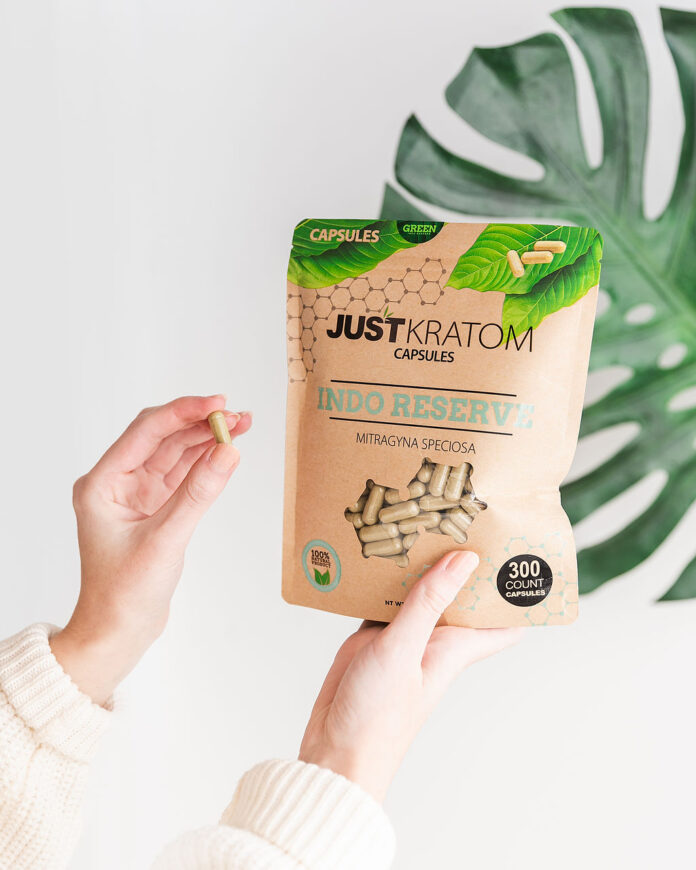Are Kratom Capsules Effective For Treating Depression Symptoms?
On April 28, 2025 by Nathaniel ParkerPotential Mechanisms of Action
Understanding how kratom might impact depression requires exploring its potential mechanisms of action. Kratom contains compounds called mitragynine and 7-hydroxymitragynine, which interact with opioid receptors in the brain. These interactions could potentially influence neurotransmitter systems involved in mood regulation, such as dopamine, serotonin, and norepinephrine. Additionally, kratom may impact other receptors, including those related to pain perception and inflammation, which can indirectly affect mood.
Neurotransmitter Modulation
Mitragynine and 7-hydroxymitragynine, the active compounds in kratom, exert their effects by binding to opioid receptors in the brain. These receptors are involved in modulating various neurotransmitter systems crucial for mood regulation. Dopamine is a key neurotransmitter associated with pleasure and reward, serotonin plays a role in regulating mood, appetite, and sleep, while norepinephrine is involved in alertness and energy levels.
By interacting with these opioid receptors, kratom may influence the release or reuptake of these neurotransmitters, potentially leading to changes in mood. Furthermore, kratom’s effects on pain perception and inflammation could indirectly contribute to mood improvement by reducing discomfort and promoting a sense of well-being.
Anti-Inflammatory Effects
Kratom’s potential anti-inflammatory effects may contribute to its purported benefits for depression. Inflammation is increasingly recognized as a factor in mental health conditions, including depression.
While research on kratom’s specific anti-inflammatory mechanisms is limited, some studies suggest that mitragynine and 7-hydroxymitragynine may inhibit the production of pro-inflammatory cytokines, molecules involved in the inflammatory response. Reducing inflammation could potentially alleviate depressive symptoms by modulating neurotransmitter activity and improving brain function.
Research Evidence
Determining the effectiveness of kratom capsules for treating depression symptoms requires a thorough examination of existing research evidence. Studies investigating kratom’s impact on mood often focus on its interactions with opioid receptors in the brain, which are implicated in regulating neurotransmitters like dopamine, serotonin, and norepinephrine. Understanding how these compounds influence these crucial systems is essential to assessing kratom’s potential as a treatment for depression.
Preclinical Studies
Preclinical studies on kratom have explored its potential therapeutic effects, including those related to depression. These studies often involve animal models and laboratory experiments to investigate kratom’s mechanisms of action and potential benefits.
While preclinical research provides valuable insights, it is important to note that findings from animal studies may not always translate directly to humans.
Human clinical trials are necessary to determine the efficacy and safety of kratom for treating depression in people.
Human Clinical Trials
Determining the effectiveness of kratom capsules for treating depression symptoms requires a thorough examination of existing research evidence. Human clinical trials are crucial for establishing whether kratom is an effective treatment for depression in humans.
- Human clinical trials allow researchers to directly assess kratom’s impact on depressive symptoms in individuals experiencing this condition.
- These trials typically involve a control group that receives a placebo and an experimental group that receives kratom capsules.
- Researchers meticulously monitor participants over a defined period, measuring changes in depressive symptoms using standardized scales and assessments.
- Through rigorous analysis of the data collected, researchers can determine if there are statistically significant differences in symptom improvement between the two groups.

Dosage and Administration
Understanding the appropriate dosage and administration of kratom is essential for exploring its potential therapeutic benefits. Factors influencing dosage include an individual’s weight, metabolism, tolerance level, and the desired effects. Kratom can be consumed in various forms, such as capsules, powders, or tea.
Recommended Dosages
Dosage recommendations for kratom vary widely based on individual factors such as body weight, metabolism, experience with kratom, and the desired effect. It’s crucial to start with a low dose and gradually increase it until the desired effect is achieved while monitoring for any adverse reactions.
Kratom capsules offer a convenient and controlled method of administration. Typical starting doses for individuals new to kratom range from 1 to 3 grams, taken orally.
Experienced users may consume higher doses, up to 5 or more grams.
It’s important to note that these are general guidelines, and individual needs may differ significantly. Consulting with a healthcare professional experienced in kratom use can help determine the appropriate dosage and administration for specific circumstances.
Forms and Routes of Administration
Dosage and administration of kratom vary depending on individual factors and intended effects. Starting with low doses is crucial, gradually increasing until desired effects are achieved while monitoring for any adverse reactions.
Kratom comes in various forms, including capsules, powders, and tea. Capsules offer a controlled dosage and convenient method of administration.
Dosage recommendations for kratom are highly individualized and should be determined in consultation with a healthcare professional experienced in kratom use.
Forms of administration include oral ingestion (capsules, powder, tea), insufflation, and intravenous injection. The choice of route depends on individual preference and desired effects.
Safety and Side Effects
While kratom shows promise as a potential treatment for depression, it’s crucial to understand the potential risks associated with its use. Kratom can cause side effects such as nausea, vomiting, constipation, and dizziness. In some cases, kratom may also lead to more serious issues like liver damage or addiction.
Potential Risks and Interactions

It’s important to note that kratom is not a FDA-approved treatment for depression.
- Potential side effects of kratom include nausea, vomiting, constipation, dizziness, itching, dry mouth, sweating, increased heart rate, and changes in blood pressure.
- Long-term use of kratom may lead to dependence or addiction.
- Kratom can interact with certain medications, such as antidepressants, opioid pain relievers, and stimulants. It’s crucial to inform your doctor about all medications and supplements you are taking if considering kratom use.
Monitoring and Management of Side Effects
Safety and side effects must be carefully considered when evaluating the potential benefits of kratom for treating depression. Kratom can cause a range of side effects, including nausea, vomiting, constipation, dizziness, itching, dry mouth, sweating, increased heart rate, and changes in blood pressure. Long-term use may lead to dependence or addiction.
Due to its interaction with opioid receptors, kratom can also interact with certain medications, such as antidepressants, opioid pain relievers, and stimulants. It’s crucial to inform your doctor about all medications and supplements you are taking if considering kratom use to avoid potentially dangerous interactions.
Monitoring for side effects is essential when using kratom. If any adverse reactions occur, it’s important to discontinue use and consult with a healthcare professional.
Managing side effects may involve adjusting the dosage, changing the administration method, or exploring alternative treatment options.
Legal Status and Regulations
Kratom, a plant native to Southeast Asia, has gained attention for its potential therapeutic benefits, including its purported ability to alleviate depressive symptoms. Understanding how kratom might impact depression requires exploring its potential mechanisms of action and associated legal status and regulations.
Variability Across Jurisdictions
Legal status and regulations regarding kratom vary considerably across jurisdictions worldwide.
- Some countries have completely banned kratom, while others have legalized it for personal use or with restrictions.
- In the United States, kratom’s legal status is complex and varies from state to state.
- At the federal level, kratom is not currently classified as a controlled substance, but there are ongoing efforts to regulate it more strictly.
Future Research Directions
Legal status and regulations surrounding kratom are complex and vary significantly across different regions.
Some countries have implemented outright bans on kratom, while others allow its use for personal purposes with certain restrictions. The United States presents a particularly diverse legal landscape, with individual states adopting varying approaches to kratom regulation. At the federal level in the US, kratom is not classified as a controlled substance; however, there are ongoing debates and legislative initiatives aimed at establishing stricter regulatory frameworks.
Future research directions for understanding kratom’s potential therapeutic benefits, particularly in treating depression, should prioritize rigorous human clinical trials that adhere to established scientific methodologies.
These trials are essential for determining the efficacy and safety of kratom as a treatment option while carefully evaluating potential side effects and long-term consequences.
Additionally, further research is needed to elucidate the specific mechanisms by which kratom exerts its effects on mood regulation, exploring its interactions with various neurotransmitter systems and inflammatory pathways.
Buy Just Kratom Kratom capsules for well-being
- Cosmelan Depigmentation Peel Near Caterham, Surrey - May 6, 2025
- Are Lip Injections Safe For All Skin Types? - May 6, 2025
- Labiomental Crease Filler – Chin Crease Treatment Near Newdigate, Surrey - May 6, 2025
Archives
Categories
- Aesthetic Treatments
- aesthetics
- Alluzience
- Botox
- Bunny Lines
- cbd gummies
- CBD Vape Pens
- Cosmelan Depigmentation Peel
- Dermal Fillers
- Downturned Smile
- Filler Dissolving
- Jawline Filler
- Kratom Capsules
- Kratom Gold Shots
- Kratom Gummies
- Lifestyle
- Lip Filler
- Love and Relationships
- Nasolabial Filler
- Non-Surgical Brazilian Buttock Lift
- Nu-Derm Skin System
- Obagi Blue Peel Radiance Peel
- Profhilo Treatment
- Quotes by Authors starting with B
- Radiesse Liquid Facelift
- Retinol Peel
- Temple Filler
- THC Drinks and Seltzers
- THC Soda
- Uncategorized
